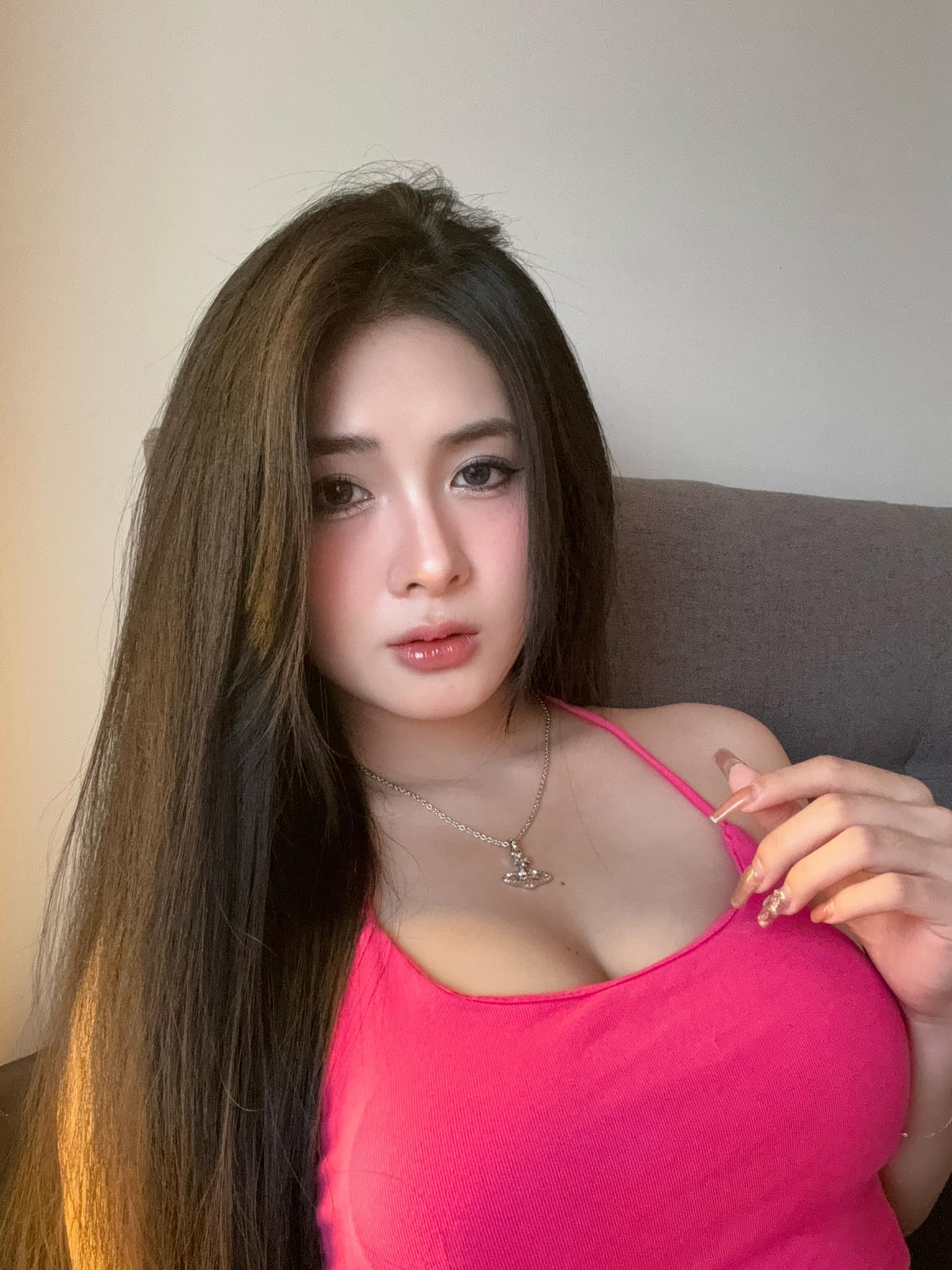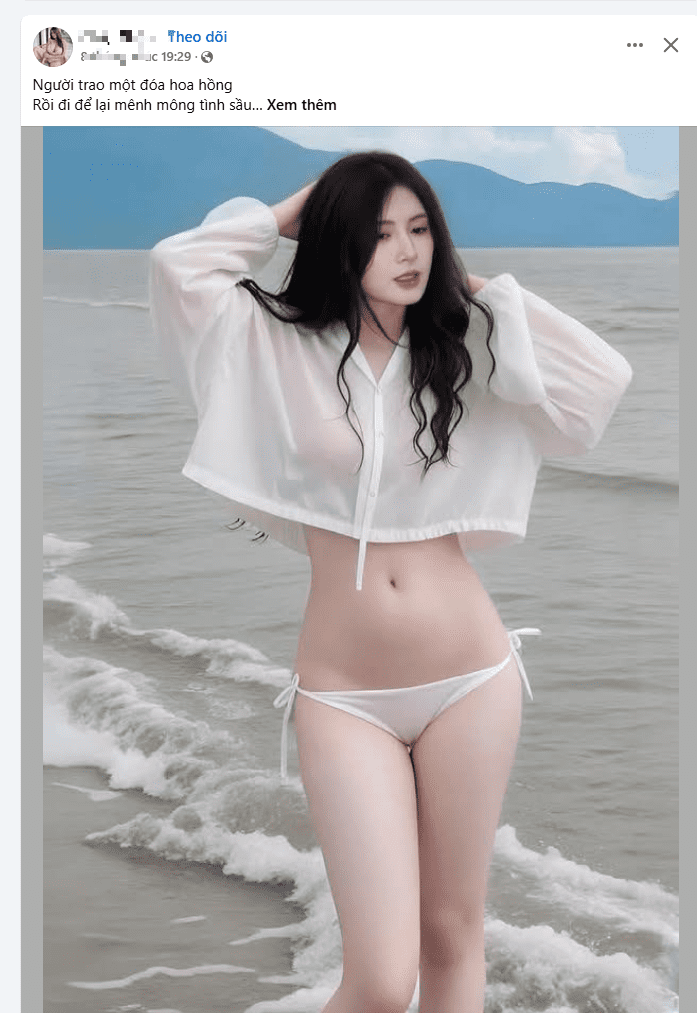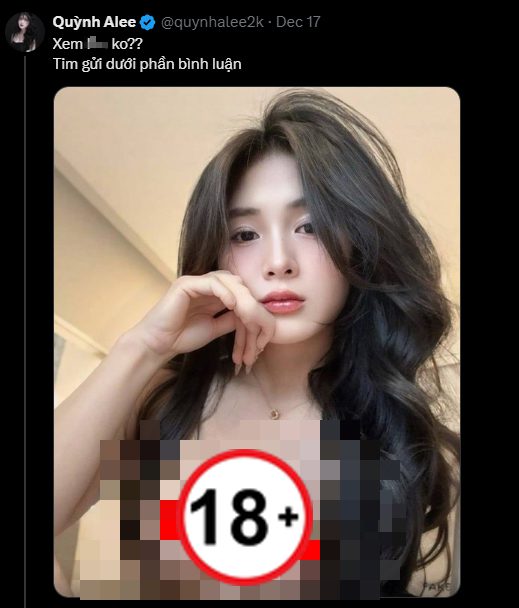Recently, TikToker Quỳnh Alee, who has nearly 8 million followers, has been at the center of attention due to her captivating dance clips and stunning moments showcasing her figure. Since rising to fame, Quỳnh Alee’s popularity has skyrocketed, establishing her as one of the leading TikTok stars in Vietnam, thanks to her beautiful appearance and natural charisma.

On her personal page, the female streamer often shares alluring photos that leave her male fans in awe. In fact, her confidence in flaunting her body is not something new. However, in recent times, the online community has been stirred by the emergence of a particular photo believed to be of the streamer Quỳnh Alee dressed in a “cool outfit.” This image quickly spread across social media platforms, garnering significant attention from users.

In reality, this image is a product of editing, featuring an angle that is attributed to another girl.

However, Quỳnh Alee’s name has garnered much more attention, leading to her becoming a target for image misuse and fame exploitation. Recently, on social media platform X, a series of suggestive moments featuring Quỳnh Alee have gone viral, including even a photo where this hot TikToker is not wearing a shirt. The post has attracted nearly 21,000 followers, earning a blue verification tick. Observing these images, which have been significantly edited along with additional suggestive captions, it is easy to see the detrimental impact this can have on her reputation.

Using someone else’s image, especially a famous person like Quỳnh Alee, to gain likes, views, or personal benefits is an unacceptable act. This not only infringes upon individual rights but also negatively affects the reputation of the individual whose image is misused. In the case of Quỳnh Alee, this behavior becomes even more serious as she is continuously subjected to edited images that appear in suggestive contexts without her consent or knowledge.
The online community needs to raise awareness and responsibility when sharing information. Before believing and spreading an image or any information, it is essential to verify the original source and its authenticity. Sharing unverified content can not only cause misinformation but also enable behaviors that infringe upon the personal rights of others.





















